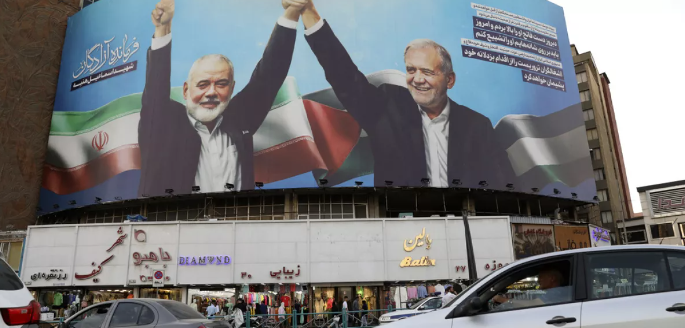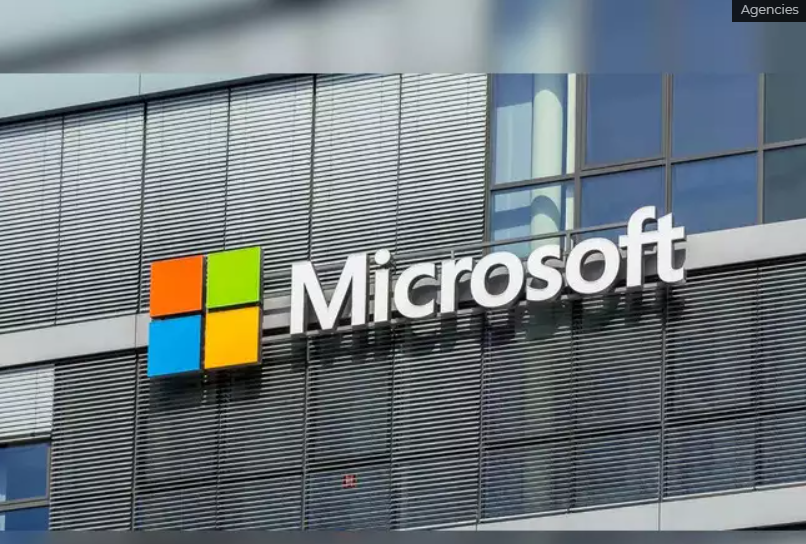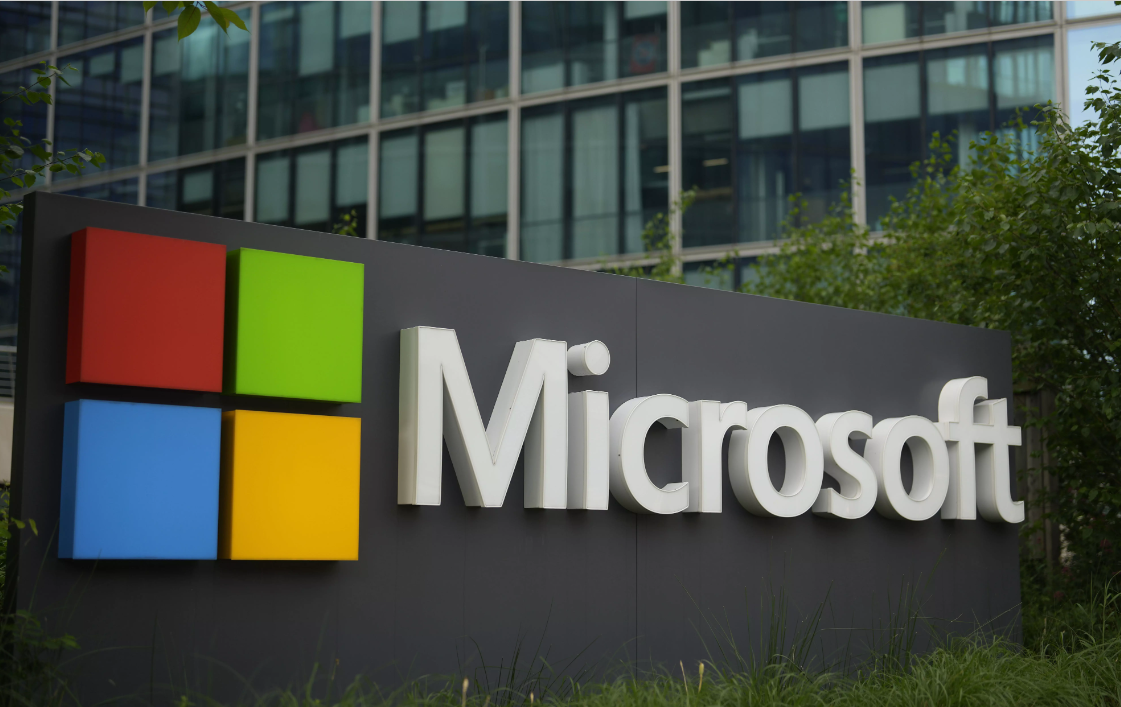Mi crosoft Reports Escalation in Iranian Cyber Activities Targeted at Influencing U.S. Elections:-
Microsoft Reports Escalation in Iranian in the rapidly evolving landscape of global cybersecurity, the intersection of state-sponsored cyber activities and democratic processes has become a critical area of concern. Recent reports from Microsoft have highlighted a significant acceleration in cyber activities by Iran, aimed at influencing the United States electoral process. These activities, which encompass a range of tactics from cyber espionage to disinformation campaigns, underscore the growing sophistication and ambition of state actors in using cyber tools to shape political outcomes in other nations. This article delves into Microsoft’s findings, the implications of these cyber activities for U.S. democracy, and the broader context of cyber warfare in international relations.
The Escalation of Iranian Cyber Activities
According to Microsoft, Iran has been ramping up its cyber operations with a specific focus on the U.S. electoral process. These activities are part of a broader strategy by Tehran to assert its influence on the global stage, particularly in light of ongoing tensions with the United States. The report suggests that Iranian cyber actors have been employing a variety of methods to interfere in the U.S. elections, including hacking attempts, spear-phishing campaigns, and the dissemination of disinformation through social media platforms.
Microsoft’s Threat Intelligence Center (MSTIC) has been closely monitoring these activities, which have shown a marked increase in both scale and intensity. The report indicates that Iranian cyber actors are targeting not only political candidates and their campaigns but also think tanks, advocacy groups, and other organizations involved in shaping public opinion. These efforts are designed to sow discord, manipulate public perception, and undermine the integrity of the electoral process.
Methods of Cyber Interference
The cyber activities attributed to Iran involve a combination of traditional cyber espionage techniques and more innovative approaches to influence operations. Some of the key methods identified by Microsoft include:
- Phishing and Spear-Phishing Campaigns: Phishing remains a popular method for gaining unauthorized access to sensitive information. Iranian cyber actors have been using spear-phishing campaigns to target specific individuals within political campaigns, think tanks, and other organizations. These campaigns often involve sending deceptive emails that appear to come from trusted sources, with the goal of tricking recipients into disclosing login credentials or downloading malicious software.
- Hacking and Data Breaches: In addition to phishing, Iranian cyber actors have been attempting to breach the networks of organizations involved in the U.S. electoral process. These hacking efforts are aimed at stealing sensitive information, which can then be used to discredit political candidates, influence public opinion, or disrupt campaign activities. Microsoft has reported several instances where Iranian hackers successfully infiltrated networks and exfiltrated valuable data.
 for more information click on this link
for more information click on this link - Disinformation and Social Media Manipulation: Disinformation campaigns have become a central component of Iran’s cyber strategy. By spreading false or misleading information through social media platforms, Microsoft Reports Escalation in Iranian Iranian cyber actors seek to polarize public opinion, create confusion, and undermine trust in democratic institutions. These campaigns often involve the creation of fake social media accounts and the amplification of divisive narratives that resonate with specific segments of the population.
- Cyber Espionage: Iranian cyber actors have also been engaging in cyber espionage, targeting individuals and organizations involved in the U.S. electoral process. The goal of these operations is to gather intelligence on political strategies, campaign tactics, Microsoft Reports Escalation in Iranian and other sensitive information that could be used to influence the outcome of the election. This intelligence can also be shared with allied actors or used to develop more targeted influence operations.
The Strategic Objectives Behind Iran’s Cyber Activities
Iran’s increasing cyber activity targeting the U.S. election is driven by a complex set of strategic objectives. At the core of these activities is Tehran’s desire to assert its influence on the global stage and counter what it perceives as U.S. aggression. The following are some of the key strategic objectives behind Iran’s cyber operations:
- Undermining U.S. Global Influence: One of Iran’s primary objectives is to undermine U.S. influence globally, particularly in the Middle East. By interfering in the U.S. electoral process, Iran hopes to weaken the U.S. government’s ability to project power and influence international affairs. This is part of a broader strategy to challenge U.S. dominance and create a more multipolar world order.
- Retaliation for U.S. Policies: Iran’s cyber activities can also be seen as a form of retaliation for U.S. policies that Tehran views as hostile. This includes economic sanctions, military actions, Microsoft Reports Escalation in Iranian and diplomatic pressure. By disrupting the U.S. electoral process, Iran seeks to exact a cost for these policies and signal its willingness to use asymmetric methods to defend its interests.
- Shaping U.S. Policy Outcomes: By influencing the U.S. electoral process, Iran aims to shape the outcome of elections in a way that favors its interests. This could involve supporting candidates who are perceived as being more favorable to Iran or undermining those who are seen as adversaries. The ultimate goal is to influence U.S. foreign policy in a direction that is more aligned with Iran’s strategic objectives.
- Promoting Internal Discord in the U.S.: Iranian cyber activities are also designed to exacerbate internal divisions within the United States. By amplifying existing social and political tensions, Iran seeks to weaken the cohesion of U.S. society and undermine the credibility of democratic institutions. This, in turn, Microsoft Reports Escalation in Iranian can create a more favorable environment for Iran to pursue its strategic objectives without facing unified opposition from the U.S.
Implications for U.S. Democracy
The acceleration of Iranian cyber activities targeting the U.S. election has profound implications for the integrity of the democratic process. These activities threaten to undermine public confidence in the electoral system, create confusion and distrust, and weaken the legitimacy of the election results. The following are some of the key implications for U.S. democracy:  for more information click on this link
for more information click on this link
- Erosion of Public Trust: One of the most significant dangers of Iranian cyber interference is the erosion of public trust in the electoral process. By spreading disinformation and creating confusion, Microsoft Reports Escalation in Iranian Iranian cyber actors aim to make voters question the fairness and legitimacy of the election. This can lead to lower voter turnout, increased skepticism about the outcomes, and a general sense of disillusionment with the democratic process.
- Polarization and Social Division: Iranian disinformation campaigns are designed to exploit existing social and political divisions within the United States. By amplifying contentious issues and spreading divisive narratives, Microsoft Reports Escalation in Iranian these campaigns contribute to the polarization of American society. This polarization can have long-lasting effects, making it more difficult to achieve consensus on key policy issues and weakening the social fabric of the nation.
- Challenges to Election Security: The increase in cyber activities targeting the U.S. election highlights the ongoing challenges to securing the electoral process. While significant progress has been made in recent years to enhance election security, the evolving nature of cyber threats means that vulnerabilities still exist. Iranian cyber actors are constantly adapting their tactics, making it essential for U.S. authorities to remain vigilant and proactive in defending against these threats.
- Potential for Disruption of Election Infrastructure: In addition to disinformation and influence campaigns, Iranian cyber actors may also attempt to disrupt election infrastructure, such as voter registration databases, voting machines, and election websites. Such disruptions could lead to delays, confusion, and challenges in accurately counting and reporting election results. This, Microsoft Reports Escalation in Iranian in turn, could undermine confidence in the outcome of the election and create a contentious post-election environment.
The Broader Context of State-Sponsored Cyber Activities
Iran’s cyber activities targeting the U.S. election are part of a broader trend of state-sponsored cyber operations aimed at influencing political processes in other countries. In recent years, several other nations, including Russia and China, Microsoft Reports Escalation in Iranian have also been implicated in cyber activities designed to interfere in democratic elections. These activities reflect the growing importance of cyber tools in statecraft and the increasing willingness of state actors to use these tools to achieve their strategic objectives.
- The Globalization of Cyber Warfare: The rise of state-sponsored cyber activities represents a new frontier in global conflict. Unlike traditional forms of warfare, cyber warfare is conducted in the digital domain, Microsoft Reports Escalation in Iranian where the rules of engagement are still being defined. State actors are increasingly using cyber tools to achieve their objectives without resorting to conventional military force. This has led to the globalization of cyber warfare, with state-sponsored cyber operations becoming a common feature of international relations.
 for more information click on this link
for more information click on this link - The Role of Cyber Tools in Political Influence: Cyber tools have become a key component of state-sponsored influence operations. These tools allow state actors to target specific populations, spread propaganda, Microsoft Reports Escalation in Iranian and manipulate public opinion with a level of precision and speed that was previously unimaginable. The use of cyber tools in political influence campaigns has raised questions about the vulnerability of democratic processes to external interference and the adequacy of existing defenses against such threats.
- The Challenge of Attribution: One of the challenges of addressing state-sponsored cyber activities is the difficulty of attribution. Unlike conventional attacks, Microsoft Reports Escalation in Iranian cyber operations are often conducted in a way that obscures the identity of the perpetrators. This makes it difficult for the targeted nation to respond effectively and raises the risk of escalation if the wrong actor is blamed. In the case of Iranian cyber activities targeting the U.S. election, Microsoft has been able to attribute the activities to Iran with a high degree of confidence, but attribution remains a complex and ongoing challenge in the broader context of cyber warfare.
U.S. Responses and Countermeasures
In response to the growing threat of Iranian cyber activities, U.S. authorities have taken a range of measures to protect the integrity of the electoral process and to deter future interference. These measures include enhancing cybersecurity defenses, Microsoft Reports Escalation in Iranian increasing public awareness of disinformation campaigns, and imposing sanctions on individuals and entities involved in state-sponsored cyber activities.
- Strengthening Cybersecurity: U.S. government agencies, in collaboration with private sector partners like Microsoft, have been working to strengthen the cybersecurity. ALSO READ:- Speaker Om Birla: “The Speaker Does Not Function on the Basis of Ideology or Party; MPs Must Uphold High Standards of Conduct 2024”




